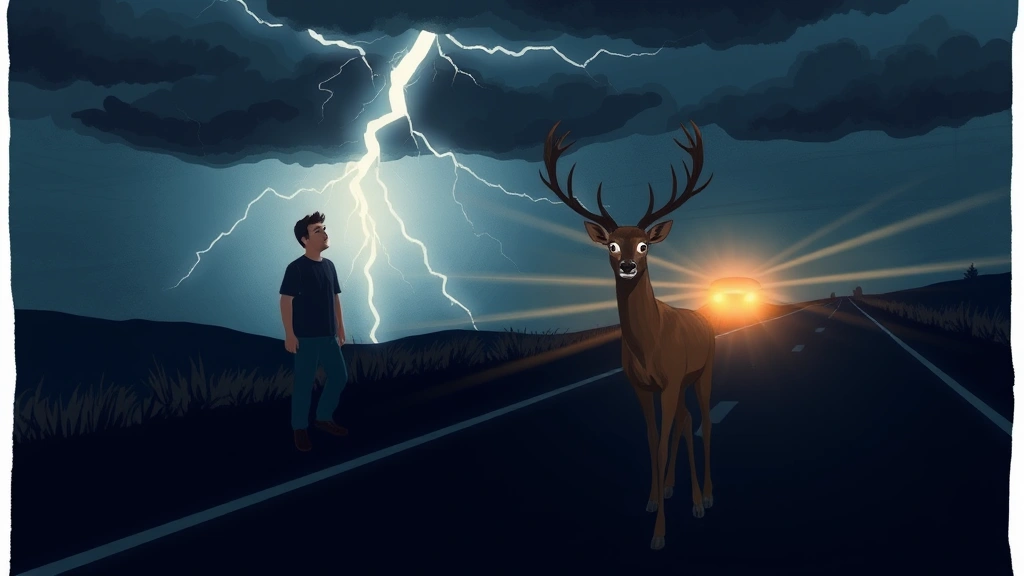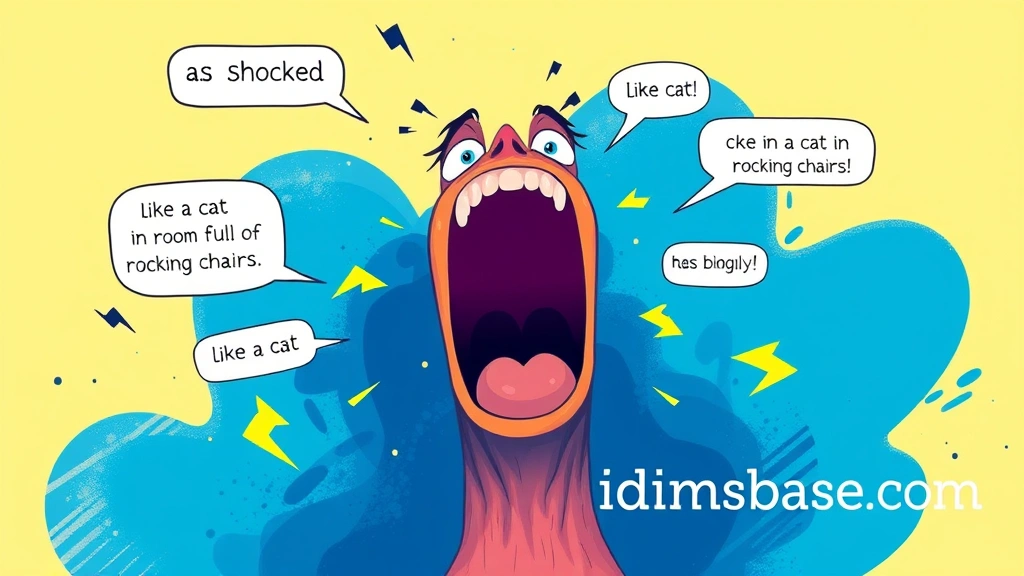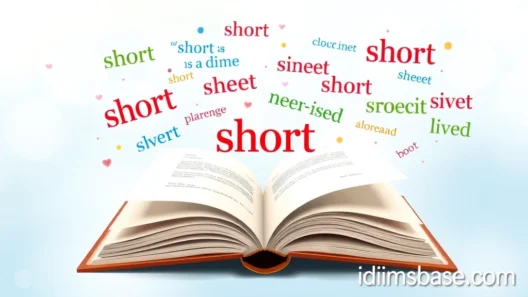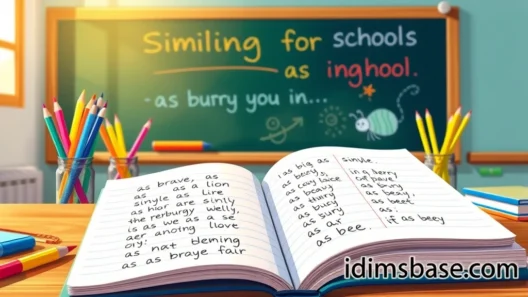Have you ever been so utterly taken aback, so completely blindsided, that words just… vanished? That feeling of your jaw hitting the floor, your eyes widening like saucers, and your brain doing a quick factory reset – that's shock! It's a universal human experience, but describing it can be a delightful challenge. How do you truly capture that moment when your world tilts on its axis? That's where similes come in handy! They're like little linguistic superpowers, helping you paint vivid pictures with words.
Similes for Shocked: Painting a Picture of Surprise
When you're trying to convey that overwhelming sense of shock, a well-placed simile can make all the difference. It helps your audience feel the surprise, rather than just read about it. Let's dive into some fantastic ways to describe being utterly shocked, flabbergasted, or simply stunned!
Common and Classic Similes
Sometimes, the classics are classic for a reason! These similes are widely understood and effectively convey sudden surprise.
- As if hit by a lightning bolt: This one instantly conjures an image of sudden, overwhelming impact. Think about it – a bolt of lightning is unexpected, powerful, and leaves you reeling.
- Like a deer in headlights: Ah, the classic! This paints a picture of frozen immobility, wide eyes, and a complete loss for what to do next. It’s perfect for that moment of stunned silence.
- Like a punch to the gut: This simile emphasizes the physical sensation of shock, the sudden, wind-knocking impact that leaves you breathless and disoriented.
- As if seeing a ghost: This captures the element of disbelief and the chilling, unexpected nature of the shock. You're seeing something you simply can't believe is real.
Vivid and Evocative Similes
Want to really make your reader feel the shock? These similes are designed to create a stronger, more sensory experience.
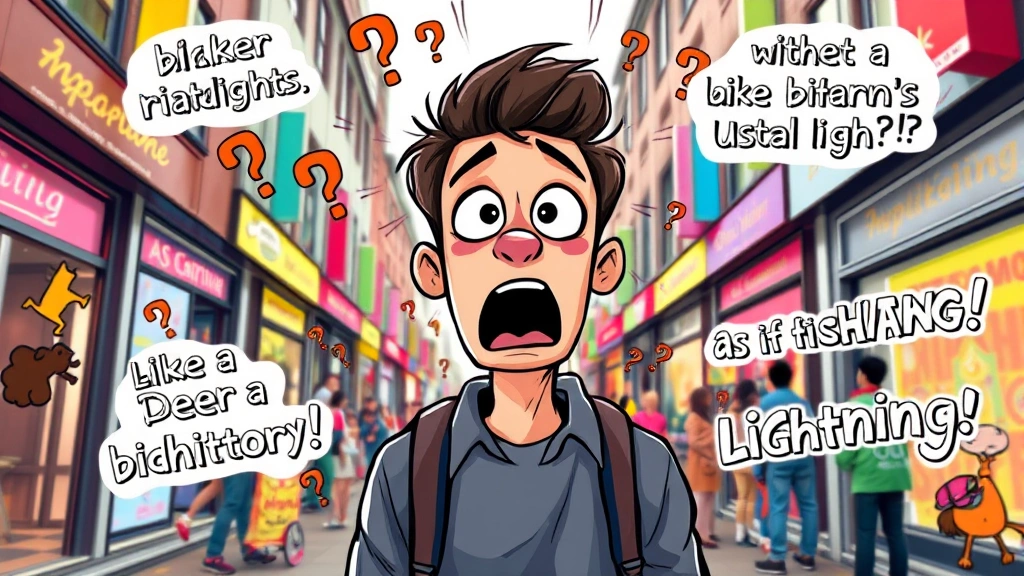
- Like the bottom dropped out of my world: This simile is fantastic for conveying a profound, disorienting shock that shakes the very foundation of someone's reality. It speaks to a sudden loss of stability.
- As if someone poured a bucket of ice water over me: Brrr! This describes a sudden, chilling shock that sends shivers down your spine and jolts you awake. It’s about the abruptness and the cold, hard reality hitting you.
- Like a record scratch: Imagine the sudden, jarring halt of music. This simile perfectly captures an abrupt stop, a moment of utter disruption and disbelief. Everything just grinds to a halt.
- As if time stood still: This emphasizes the feeling of a moment stretching out, where the shock is so intense that your perception of time warps. It’s a powerful way to show how overwhelming the moment is.
- Like a deer caught in a bear trap: This is a step up from "deer in headlights," implying not just frozen fear but also a sense of being trapped and utterly helpless in the face of the shocking revelation.
Humorous and Unexpected Similes
Sometimes, shock can be a little absurd, or you might want to inject some levity. These similes offer a touch of humor or a unique perspective.
- Like a cat seeing a cucumber: If you've ever seen those viral videos, you know exactly what this means! It's about an unexpected, almost comical, jump-scare type of shock.
- As if I'd just been told my dog could fly: This is wonderfully specific and brings a smile to your face while perfectly conveying utter, delightful disbelief. It's the kind of shock that makes you question reality.
- Like finding a penguin in your bathtub: Wholly unexpected and completely out of place! This simile is great for a shock that's bizarre and almost unbelievable.
Why Use Similes for Shock?
Using similes isn't just about sounding fancy; it's about effective communication. Here’s why they’re so powerful:
- Enhance Readability: Similes make your writing more engaging and less dry. They break up monotonous descriptions.
- Create Vivid Imagery: They allow your reader to visualize the feeling, making your narrative more immersive.
- Add Emotional Depth: By comparing the unknown (shock) to the known (lightning, ice water), you help readers connect emotionally.
- Show, Don't Just Tell: Instead of saying "he was shocked," you can say "he froze like a deer in headlights," which is far more impactful.
Key Takeaways

- Similes are powerful literary tools that compare two unlike things using "like" or "as," making descriptions more vivid.
- When describing shock, similes help convey the intensity, suddenness, and emotional impact of the experience.
- Choosing the right simile depends on the specific nuance of shock you want to convey – from physical impact to mental disorientation.
- Using a variety of similes keeps your writing fresh and engaging for your audience.
Frequently Asked Questions (FAQs)
What is a simile?
A simile is a figure of speech that directly compares two different things, usually by using the words "like" or "as." Its main purpose is to make a description more vivid or emphasize a particular quality. For example, "brave as a lion" compares bravery to a lion's known courage.
How do similes differ from metaphors?
While both similes and metaphors are figures of speech that compare two things, the key difference lies in how they make the comparison. Similes directly compare using "like" or "as" (e.g., "The cloud was like a fluffy cotton ball"). Metaphors indirectly state that one thing is another, without using "like" or "as" (e.g., "The cloud was a fluffy cotton ball"). Metaphors create a stronger, more direct identification.
Can I invent my own similes for shocked?
Absolutely! The beauty of language is its flexibility. While classic similes are great, creating your own original similes can make your writing unique and memorable. Think about what shock feels like to you – is it a sudden jolt? A loss of breath? A feeling of unreality? Then, think of something else that evokes a similar feeling or image. For example, "My jaw dropped like a dropped penny" or "I was as still as a statue in a museum."
Are there different types of shock that require different similes?
Yes, definitely! The kind of shock you're describing can influence the best simile to use.
- Sudden, physical shock: "Like a punch to the gut," "as if hit by a lightning bolt."
- Disbelief/astonishment: "As if seeing a ghost," "like finding a penguin in your bathtub."
- Frozen, deer-in-headlights shock: "Like a deer in headlights," "as if time stood still."
- Profound, world-altering shock: "Like the bottom dropped out of my world."
Choosing the right simile adds precision and depth to your description.
Why is it important to use varied language when describing emotions?
Using varied language, especially for emotions like shock, prevents your writing from becoming repetitive and dull. If you always use the same phrases, your reader might disengage. Varied vocabulary and the use of literary devices like similes keep the content fresh, engaging, and allow for a richer, more nuanced portrayal of human experience. It also demonstrates a stronger command of language and makes your descriptions more impactful and memorable.
So, the next time you're trying to describe that jaw-dropping, eye-popping moment of pure shock, remember these similes. They're your secret weapon for making your words leap off the page and truly resonate with your audience. What’s your favorite way to describe being utterly shocked? Share your thoughts and let's keep the conversation going!
